This content has been archived. It may no longer be relevant
A fascinating study conducted by researchers from the University of California, San Francisco has discovered something new about lung function – our lungs make blood. So how did they discover this, and how does this impact on the health of freedivers?
Lungs Make Blood – The Latest Discovery
This year researchers from the University of California, San Francisco published the results of research into lung function in mammalian bodies. What they discovered could transform the treatment of blood-related disease and could impact on the way freedivers train and maintain optimum lung function health.
The research was conducted with the use of mice. The team discovered that the lungs of the mice undergoing the experiments produced almost all of the animal’s blood platelets while their lung tissue also contained blood stem cells, meaning our lungs make blood – contrary to the long held belief that blood components were produced by bone marrow.
Mark R Looney – one of the researchers said “This finding definitely suggests a more sophisticated view of the lungs – that they’re not just for respiration, but also a key partner in formation of crucial aspects of the blood,”
How was the discovery that lungs make blood made?
The discovery that lungs make blood was made by two-photon intravital imaging, a process involving the use of a substance called green fluorescent protein, which when injected into the mice emits a bright green fluorescence as it circulates around the body. As researchers traced the protein they observed large amounts of platelet-producing megakaryocytes inside the lung tissue – which is usually found in bone marrow, and investigated it further.
What does this new research mean?
Research indicates that the megakaryocytes most likely originate in the bone marrow, then make their way to the lungs, where they start platelet production.
The researchers tested a theory that this discovery could potentially transform the treatment and management of lung disorders. They were proved right when they transplanted fluorescent megakaryocyte progenitor cells into mice with low platelet counts to examine whether lungs make blood after transplant, too. The transplants produced what was described as ‘a massive burst of platelets that quickly restored the depleted platelet counts to normal levels’, not only that, the effect lasted for several months. Additional tests were conducted that produced equally exciting results.
Full details of the research has been published in Nature.
Lung Function – The Freediver
Why is lung function and lung health so important for the freediver? Freediving requires a degree of fitness and health – as with any sport. However, in competitive training, or even advanced level freediving the wellbeing of the diver and their bodily health increases as the demands on their organs, particularly their heart and lungs, are increasingly tested (sometimes beyond what is perceived to be ‘human limits’).
When we start freediving up to the residual volume of the lungs and beyond (usually between 25 and 35 metres), we risk a lung baratrauma if we do not have sufficient flexibility of our rib cage and diaphragm. We can damage our delicate lung tissue and in one extreme case, this ‘lung squeeze’ has even led to the death of a freediver who dived very deep in a competition without allowing his lungs to heal from previous injuries. Now that we know that the lungs make blood components, it becomes even more important to safeguard them and the vital work they do to keep us alive.
However, just as it is with cardio workouts, the more you work your lungs and the muscles around them, the stronger they become. Conditioning your lungs with breathing exercises, diaphragm stretching and a refined equalisation technique (which reduces pressure on the lungs) increases your lungs’ ability to react safely to increasing pressure therefore reducing the level of stress on your body.
How will this research affect freediving?
Up until a few years ago it was thought that the spleen didn’t do much in the body, and removing it wasn’t seen as that much of a big deal.
However we now know that the spleen acts as a sponge, full of extra blood and red blood cells, and when we activate the mammalian dive reflex, the spleen squeezes out this extra blood into the circulation. What this means for freedivers is that we suddenly have more red blood cells in the blood and this means more oxygen can be carried and we can hold our breath for longer.
It was thought that this effect was temporary, however anecdotal evidence from elite freedivers has shown that repeated freediving training increased the hematocrit levels in the blood (the amount of red blood cells) beyond normal levels. This means that they were able to increase on a stable and semi permanent basis the amount of oxygen that they could carry.
Now we know that the lungs make blood components, it would be fascinating to see if freediving lung training increased their ability to do this and whether this is connected to the increased hematocrit levels reported by the elite freedivers.
If we can ascertain there is a link, then we may be able to more precisely tailor our freediving and dry training to improve the ability of the lungs to make blood and work in synergy with the spleen to increase the amount of oxygen we can carry.
Learn to freedive with Go Freediving
Go Freediving is the longest established, most experienced and friendliest freediving course provider in the UK, led by world class freediving instructor trainer Emma Farrell, and her team of personally trained instructors. No other course provider has such a good instructor to student ratio, safety record and personal touch.
Whether you’re a beginner dipping your toes into the world of freediving, a seasoned pro looking to turn professional, or simply a freediver of any level who wants the best freediving holiday in the world, we’re here for you!
Also check out our online guide, The Beginners Guide to Freediving by clicking here!
Keep in touch with everything Freediving
Subscribe to our mailing list for weekly newsletters with exclusive articles, news, films, offers and more!



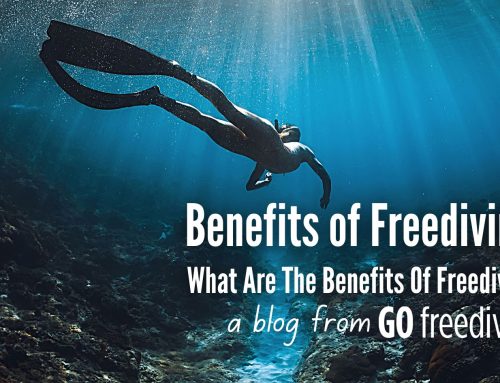
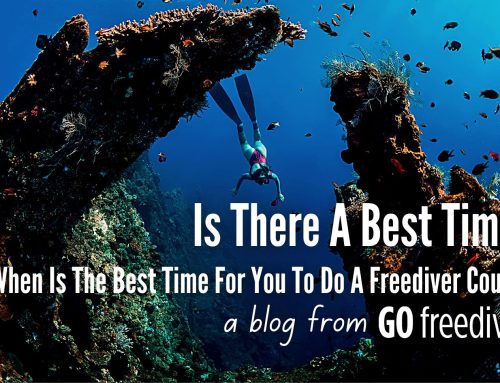
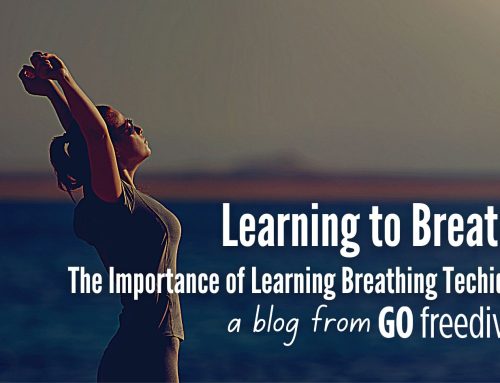
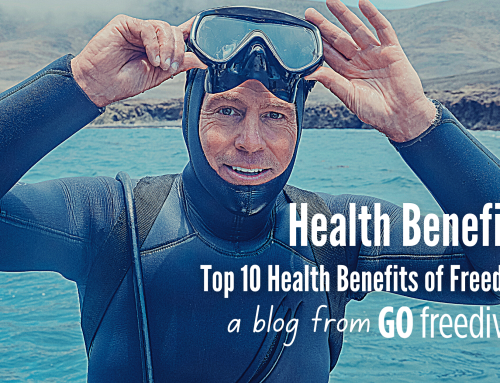
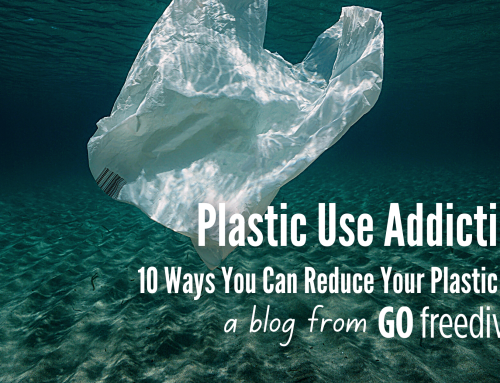
Leave A Comment